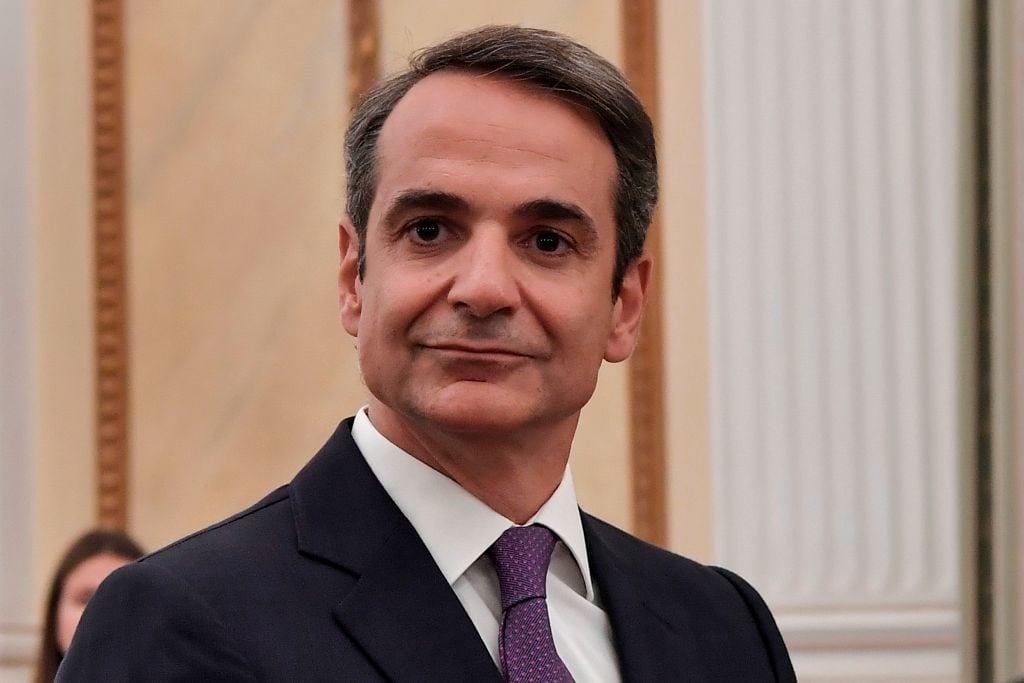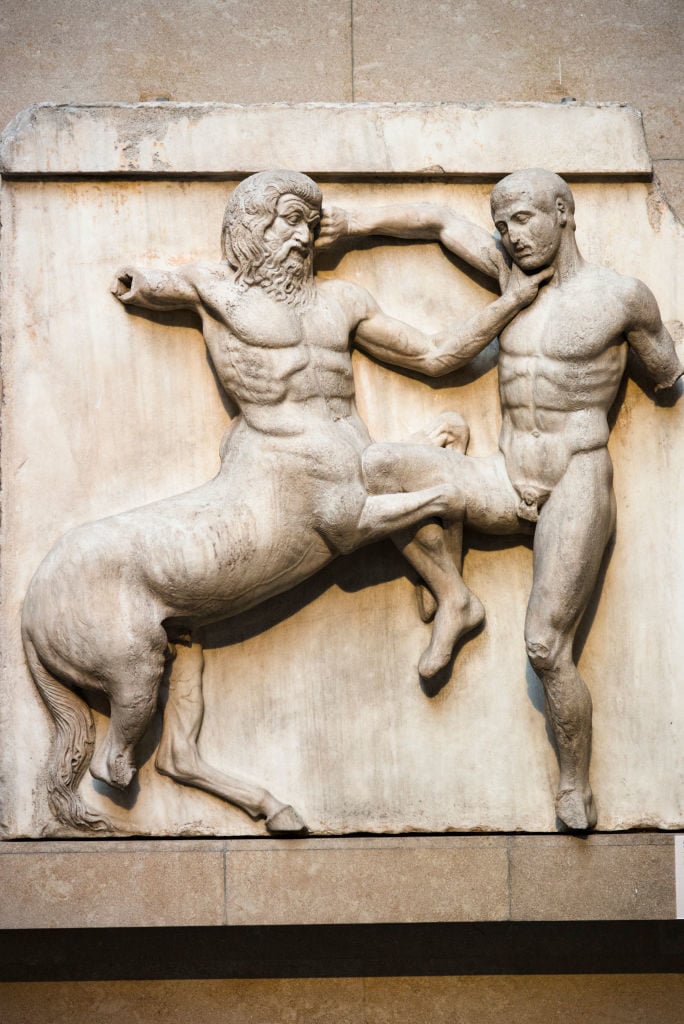Art World
Greece’s New Prime Minister Wants Boris Johnson to Loan the Parthenon Marbles in a Bold Swap of Ancient Treasures
The British Museum says the sculptures are a matter for its trustees, not the UK government.

The British Museum says the sculptures are a matter for its trustees, not the UK government.

Naomi Rea

Greece’s new prime minister intends to make a bold offer to his UK counterpart in an attempt to end more than 200 years of stalemate over the Parthenon Marbles. If Boris Johnson agrees to lend the precious sculptures in the British Museum to mark the bicentenary of Greek independence, Athens will in return lend ancient treasures never shown outside of Greece, Kyriakos Mitsotakis told the Observer.
The offer is unlikely to impress the director and trustees of the British Museum, however, which is an arms-length body not under the control of the UK government. Additionally, the chance of Johnson being in power next year is far from assured as he faces a growing rebellion within his own party from MPs opposed to an abrupt exit from the European Union. The leader of the opposition, Jeremy Corbyn, does support the sculptures’ repatriation, although the odds of the Labour Party winning a snap general election, should Johnson call one, seem long.
Greece has made repeated bids over the past four decades to reunite the sculptures in Athens but the British Museum has long rebuffed these requests. Its director Hartwig Fisher raised the hackles of the Greeks earlier this year when he vowed that the museum would never return the sculptures, and even suggested that Lord Elgin’s removal of them constituted a “creative act.”
The sculptures at the center of the long-running dispute formed part of the Parthenon frieze created by the master sculptor Phidias in the fourth century BC. Elgin, then the British ambassador to the Ottoman Empire, removed around 260 feet of the masterpiece in 1802, which he later sold to the British Museum. Only around 164 feet of the work remains in Athens. Other fragments are scattered across various European museums, including the Louvre in Paris, and the Vatican Museums.
Meanwhile, Greece has also petitioned France for part of the sculptures it holds in the Louvre, a section depicting a centaur in confrontation with a Lapith. Last week, Mitsotakis asked the French President Emmanuel Macron, who promised to look into the matter.

Elgin Marbles from the Parthenon in Athens at the British Museum. Photo by Education Images/Universal Images Group via Getty Images.
In a notable change of tack for Greece, Mitsotakis has acknowledged that the sculptures are part of a shared heritage. “The Acropolis doesn’t necessarily solely belong to Greece,” he said. “It’s a monument of global cultural heritage.” However, he qualified his statement, saying: “if you really want to see the monument in its unity, you have to see what we call the Parthenon sculptures in situ,” referring to the purpose-built Acropolis Museum in Athens.
Mitsotakis is suggesting the British Museum temporarily loan the sculptures in 2021, as part of Greece’s celebration of 200 years of independence from the Ottoman Empire. The center-right politician, who was elected in July, said he plans to petition Johnson, who has a longstanding interest in ancient history, having studied Classics at the University of Oxford.
Mitsotakis seems to have overlooked Johnson’s previous suggestion that the “acrimonious dispute” between the two nations might be resolved by giving the Greeks an “indistinguishable replica” of the missing parts of the frieze. Johnson seemed unaware that the Acropolis Museum already displays casts of the pieces in the British Museum and the Louvre.
Mitsotakis was careful not to row back on Greece’s longstanding demand for permanent reunification of the sculptures. “Of course, our demand for the return of the sculptures remains in place,” Mitsotakis said, adding that London’s attempt to keep the sculptures will eventually be “a losing battle.”
A spokewoman for the British Museum tells artnet News that there has not yet been any direct contact from the Greek authorities regarding the proposal made over the weekend. “As an arms-length body, this would be a matter for the trustees not the UK Government,” she points out. She adds that the British Museum is “committed to sharing its collection as widely as possible,” noting that it lent over 5,000 objects to venues in the UK and internationally last year. The museum has not lent a Parthenon sculpture since it sent a sculpture of the river god Ilissos to the Hermitage State Museum in St Petersburg to mark its 250th birthday in 2014.